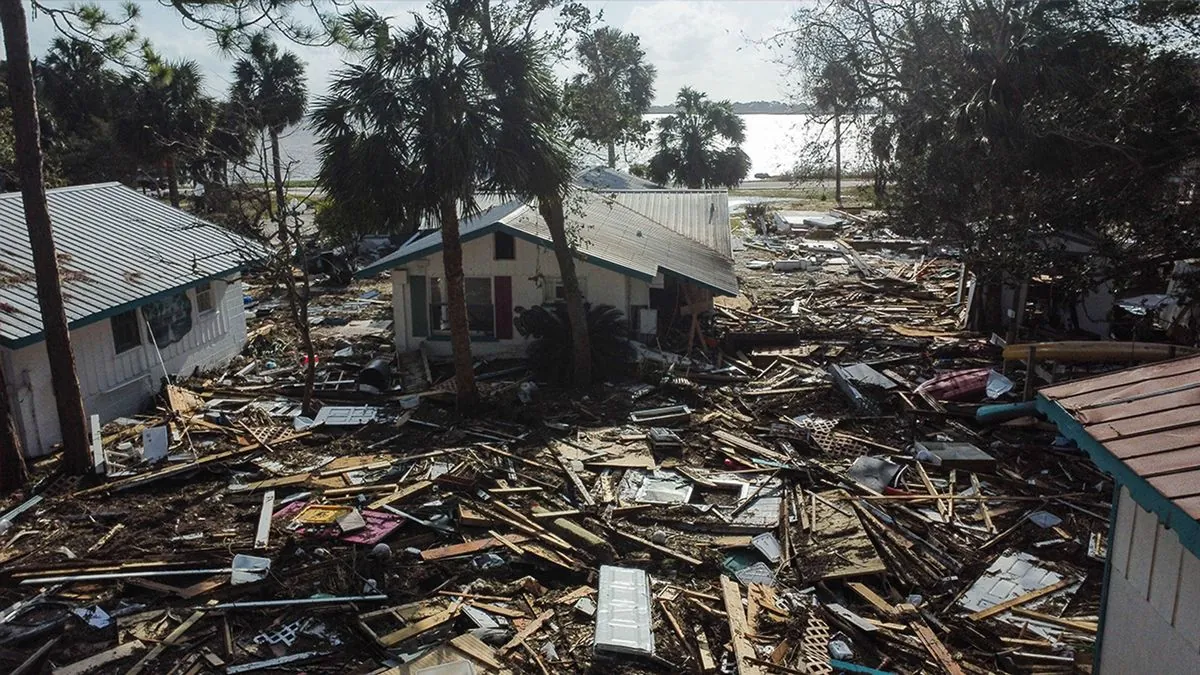Hurricane Helene, the eighth named storm of the 2024 Atlantic hurricane season, has left a trail of destruction across Georgia, South Carolina, and North Carolina. Five days after the storm made landfall, more than 1.4 million homes and businesses remain without power, highlighting the extensive damage to the region's electrical infrastructure.
In Augusta, Georgia, Sherry Brown exemplifies the struggles faced by many residents. With no electricity or water, a tree on her roof and vehicle, Brown has resorted to innovative measures to preserve food. "You just have to count your blessings," she remarked, acknowledging that despite the challenges, her family avoided more severe outcomes.
The storm's impact extends far beyond individual households. In Augusta and surrounding Richmond County, home to over 200,000 people, authorities have established water distribution centers to address widespread outages. Long lines of vehicles stretch for considerable distances as residents seek this essential resource.
The power restoration process is complex and time-consuming. Gary Stooksbury, CEO of Aiken Electric Cooperative Inc., explained, "We have a small army working. We have people sleeping in our offices." The U.S. electric power grid, comprising more than 7,300 power plants and nearly 160,000 miles of high-voltage power lines, faces significant challenges in the wake of Helene's destruction.
Hurricane Helene's hurricane-force winds, defined as sustained speeds of 74 mph (119 km/h) or higher, caused extensive damage to trees and power poles. This widespread destruction has complicated recovery efforts, with crews working to restore transmission lines, repair substations, and replace damaged infrastructure in neighborhoods.
The storm's impact is evident in communities along its path. In Edgefield, South Carolina, known for its pottery tradition dating back to the early 19th century, downed trees and shattered power poles are visible on nearly every block. Jessica Nash, a local business owner, has been using a generator to provide food for community members, demonstrating the spirit of mutual aid that often emerges during crises.
"People are helping people. It's nice to have that community. But people are really ready to get the power back."
As recovery efforts continue, residents face numerous challenges. The risk of carbon monoxide poisoning from improper generator use is a concern, while the lack of functioning traffic signals has made roads hazardous. The National Guard has been activated to assist in disaster relief efforts, working alongside organizations like FEMA and the American Red Cross.
Climate scientists warn that events like Hurricane Helene may become more frequent and intense due to climate change. This underscores the importance of strengthening infrastructure and improving disaster preparedness in vulnerable regions.
As affected communities work towards recovery, the resilience of residents like Sherry Brown and the collaborative efforts of neighbors helping one another serve as a testament to the human spirit in the face of adversity. While the road to normalcy may be long, the shared experience of overcoming Hurricane Helene's impact is likely to leave a lasting impression on the affected regions.
